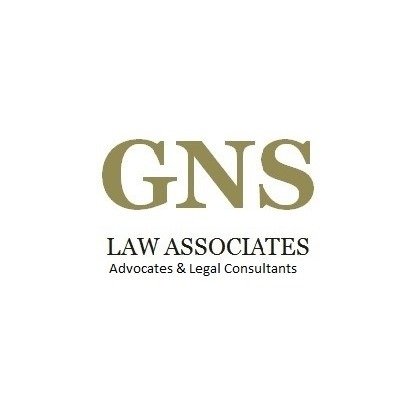Best Probate Lawyers in Karachi
Share your needs with us, get contacted by law firms.
Free. Takes 2 min.
List of the best lawyers in Karachi, Pakistan
Pakistan Probate Legal Questions answered by Lawyers
Browse our 1 legal question about Probate in Pakistan and read the lawyer answers, or ask your own questions for free.
- proof of legal heir
- I am nominated by my uncle for his property after his death, he does not have any legal heir parents, sister, brothers, children, and wife. i need to get the succession certificate, but how can I prove to the court that there is no legal heir for my uncle now,... Read more →
-
Lawyer answer by SJ Law Experts
Thank you. SJ Law Experts, Islamabad [Advocates, Legal Advisors & Immigration Lawyers].
Read full answer
About Probate Law in Karachi, Pakistan
Probate is the legal process through which a deceased person's will is validated by a court, ensuring that their estate is distributed according to their wishes. In Karachi, Pakistan, probate law involves authenticating the will, settling any debts or taxes, and distributing the remaining assets to the beneficiaries. The process can vary in complexity depending on the size of the estate and whether any disputes arise among the potential heirs or beneficiaries. Understanding how probate works in Karachi is essential for the lawful and correct distribution of an individual's estate.
Why You May Need a Lawyer
Engaging a lawyer for probate matters can be crucial for several reasons. Probate can become complicated if any of the beneficiaries contest the will or if there are ambiguities within the document. Additionally, navigating the legal paperwork and court processes can be daunting without professional assistance. Common situations where you may require legal help include handling estate taxes, dealing with complex family dynamics, interpreting vague or outdated wills, or if you suspect that the will is fraudulent and wish to challenge it. Lawyers can provide the expertise needed to ensure an efficient and equitable resolution.
Local Laws Overview
In Karachi, probate cases are governed by a combination of federal and local laws, primarily the Succession Act of 1925. The courts require that the executor of a will obtain a 'letter of administration' or a 'grant of probate' to administer the estate. The process requires submitting necessary documents, including the deceased's death certificate, the will, and an inventory of the estate's assets. Moreover, the laws differentiate between 'testate' and 'intestate' succession - dealing with cases with and without a valid will, respectively. Understanding these details and ensuring compliance with local procedures is essential for a smooth probate process.
Frequently Asked Questions
What is the difference between probate and non-probate assets?
Probate assets are those owned solely by the deceased and which do not have a designated beneficiary. Non-probate assets, such as joint accounts or life insurance policies, directly transfer to the beneficiary without the need for probate.
How long does probate take in Karachi?
The timeframe for probate in Karachi can vary depending on the complexity of the estate and the presence of any disputes. It can range from a few months to over a year.
What documents are required to begin probate?
Commonly needed documents include the deceased's death certificate, the original will, property documents, and a list of assets and liabilities.
Can a will be challenged in court, and on what grounds?
Yes, a will can be challenged on grounds such as lack of testamentary capacity, undue influence, fraud, or if the will was not properly executed according to the law.
What happens if there is no will?
If there is no will, the estate is distributed according to the laws of intestate succession, which generally prioritizes closest relatives like spouses and children.
Who can apply for probate?
The executor named in the will typically applies for probate. If there is no named executor, or no will exists, an interested party such as a beneficiary can apply for letters of administration.
Does every executor need a lawyer?
Not necessarily, but hiring a lawyer ensures that all legal procedures are correctly followed, particularly in complex estates or when disputes are likely.
How does probate handle debts of the deceased?
Debts must be paid from the estate before distribution to beneficiaries. The executor is responsible for ensuring debts are settled, often requiring creditors to file claims against the estate.
Is a probate court hearing always necessary?
A hearing is usually required to authenticate the will and settle any challenges. However, if all paperwork is in order and uncontested, the process may be more straightforward.
Can an estate be settled without going to court?
Some small estates may be settled informally without court intervention, particularly if no real property is involved and the value falls below certain thresholds.
Additional Resources
For additional assistance, there are several resources available, including the High Court of Sindh, which oversees probate matters. Legal aid organizations and the Sindh Bar Council can also provide guidance and help in finding a suitable lawyer. Additionally, the Pakistan Law Commission offers publications and resources on the legal landscape of probate.
Next Steps
If you need legal assistance for probate matters, start by gathering all relevant documents, such as the deceased's will, death certificate, and financial records. Consult with a lawyer specializing in probate who can guide you through the legal requirements and options. Taking these steps ensures the proper management and distribution of the estate in compliance with local laws and helps prevent potential disputes among beneficiaries.
Lawzana helps you find the best lawyers and law firms in Karachi through a curated and pre-screened list of qualified legal professionals. Our platform offers rankings and detailed profiles of attorneys and law firms, allowing you to compare based on practice areas, including Probate, experience, and client feedback.
Each profile includes a description of the firm's areas of practice, client reviews, team members and partners, year of establishment, spoken languages, office locations, contact information, social media presence, and any published articles or resources. Most firms on our platform speak English and are experienced in both local and international legal matters.
Get a quote from top-rated law firms in Karachi, Pakistan — quickly, securely, and without unnecessary hassle.
Disclaimer:
The information provided on this page is for general informational purposes only and does not constitute legal advice. While we strive to ensure the accuracy and relevance of the content, legal information may change over time, and interpretations of the law can vary. You should always consult with a qualified legal professional for advice specific to your situation.
We disclaim all liability for actions taken or not taken based on the content of this page. If you believe any information is incorrect or outdated, please contact us, and we will review and update it where appropriate.













